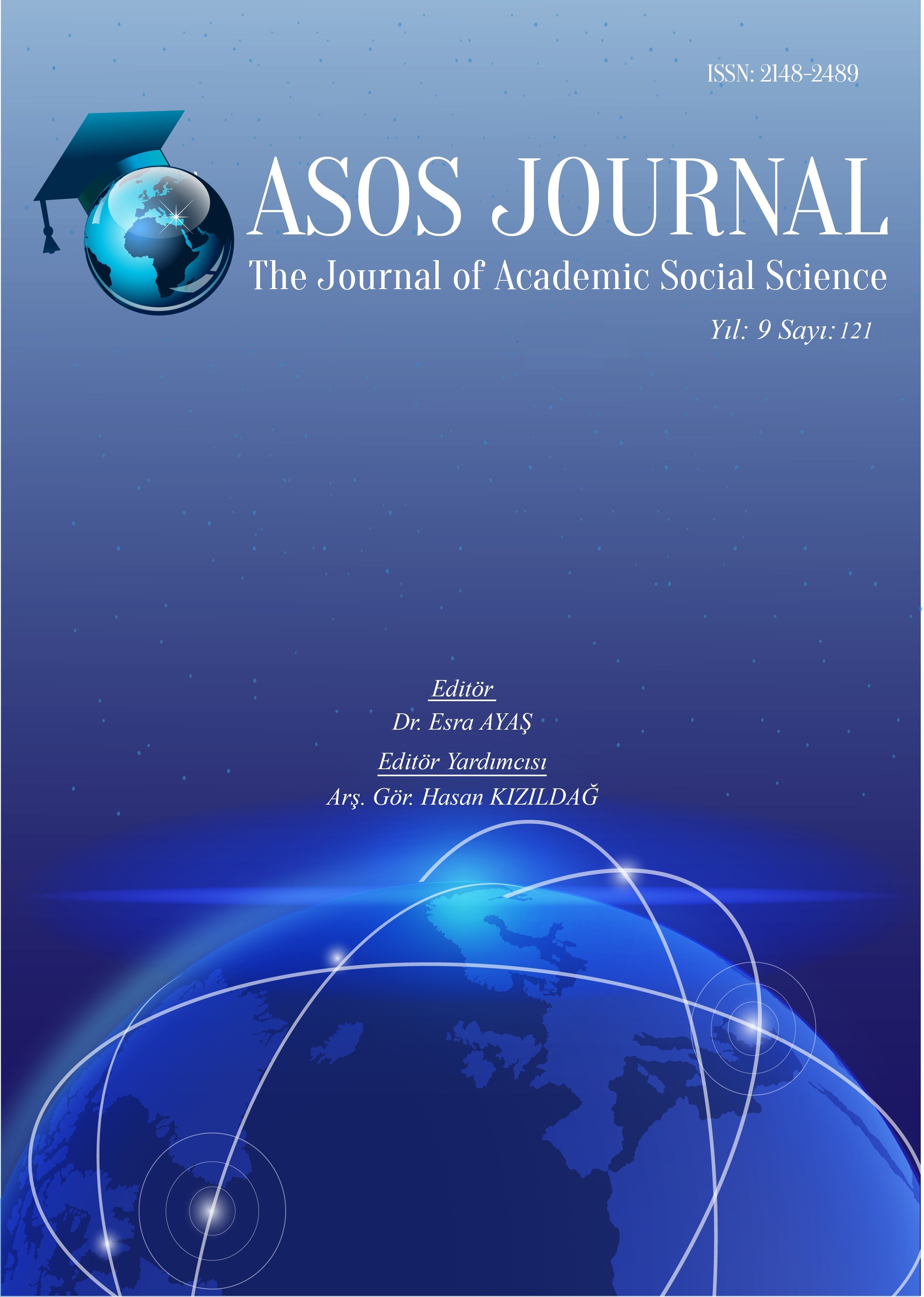Author :
Abstract
Keywords
Abstract
This article aims to engage with the intractable conflict in Cyprus and the changes in many Cypriots’ lives after the island was divided into two parts. Building on insights from political and social psychological studies, this article analyzes the Cyprus conflict durability, and the different countries’ and international organizations’ role in conflict management through nationalism and border ideologies. After focusing specifically on the conflict and the theories related to the causes of conflict, the research critically discusses the various conflict transformation approaches and tries to understand the ethnic conflicts through the lens of social identities, social belongings, and establishing inter-communal interactions. Using semi-structured interviews with people from both Greek Cypriot and Turkish Cypriot communities, the research provides explanations of why the conflict is still not resolved and gives examples of how to reduce prejudice between the groups in conflict. This research derives from the urgency to highlight the importance of inter-communal contact for constructing an alternative and more collaborative future. Finally, the study investigates the new paradigm of positive peace and nonviolence where the culture of war is dismantled, learning for peace is encouraged and the geographic limits are deconstructed.
Keywords
- Adams WC (2010). Conducting semi-structured interviews. In Wholey JS, Hatry HP and Newcomer KE. Handbook of Practical program evaluation. San Francisco: John Wiley and Sons
- Aksu, E. (2018). The UN in the Cyprus conflict: UNFICYP. The United Nations, Intra-State Peacekeeping and Normative Change. Published. https://doi.org/10.7765/9781526137906.00010
- Allport, G. W., Clark, K., & Pettigrew, T. (1979). The Nature of Prejudice: 25th Anniversary Edition (Unabridged ed.). Basic Books.
- Andreas, P. (2003). Redrawing the Line: Borders and Security in the Twenty-first Century. International Security, 28(2), 78–111. https://doi.org/10.1162/016228803322761973
- Asmussen, J. (2004). Cyprus after the failure of the Annan-Plan. European Centre for Minority Issues, 1–15.
- Brown, R. (2000). Social identity theory: past achievements, current problems and future challenges. European Journal of Social Psychology, 30(6), 745–778.
- Butina, M., (2015). A narrative approach to qualitative inquiry. Clinical Laboratory Science, 28(3), 190-196.
- Carr, M. (2012). Fortress Europe: Dispatches from a Gated Continent. The New Press.
- Croucher, S. M. (2017). Integrated Threat Theory. Oxford Research Encyclopedia of Communication. Published. https://doi.org/10.1093/acrefore/9780190228613.013.490
- Deutsch, K. W. (1953). Nationalism and Social Communication: An Inquiry into the Foundations of Nationality. The Technology Press of MIT.
- Deutsch, M., Coleman, P. T., & Marcus, E. C. (2006). The Handbook of Conflict Resolution: Theory and Practice (2nd ed.). Jossey-Bass.
- Dodd, C. (2010). The History and Politics of the Cyprus Conflict (1st ed. 2010 ed.). Palgrave Macmillan.
- Erhürman, T. (2010). New Set of Negotiations in the Cyprus Problem: Federation for a Stable Democracy. Ankarabarreview, 35–41.
- Fisher, R. J. (2001). Cyprus: The Failure of Mediation and the Escalation of an Identity-Based Conflict to an Adversarial Impasse. Journal of Peace Research, 38(3), 307–326. https://doi.org/10.1177/0022343301038003003
- Fox, N. (2009). Using interview in a research project. Yorkshire, UK: The NIHR Research Design Service.
- Gaertner, S. L., Dovidio, J. F., Anastasio, P. A., Bachman, B. A., & Rust, M. C. (1993). The Common Ingroup Identity Model: Recategorization and the Reduction of Intergroup Bias. European Review of Social Psychology, 4(1), 1–26.
- Gellner, E. (1983). Nations and Nationalism (New Perspectives on the Past). Cornell University Press.
- Hornsey, M. J. (2008). Social Identity Theory and Self-categorization Theory: A Historical Review. Social and Personality Psychology Compass, 2(1), 204–222. https://doi.org/10.1111/j.1751-9004.2007.00066.x
- House, J. (1980). The Frontier Zone. International Political Science Review, 1(4), 456–477.
- Kelman, Herbert C. (2010) "Conflict Resolution and Reconciliation: A Social-Psychological Perspective on Ending Violent Conflict Between Identity Groups," Landscapes of Violence: Vol. 1 : No. 1 , Article 5.
- Kriesberg, L. (1982). Social Conflict Theories and Conflict Resolution. Peace & Change, 8(2– 3), 3–17. https://doi.org/10.1111/j.1468-0130.1982.tb00644.x
- Martinez, O. J. (1994). The Dynamics of Border Interaction: New Approaches to Border Analysis. In C. H. Schofield (Ed.), Global Boundaries (1st ed., pp. 1–15). Routledge.
- Nadler, A., Malloy, T., & Fisher, J. D. (2008). Social Psychology of Intergroup Reconciliation: From Violent Conflict to Peaceful Co-Existence (1st ed.). Oxford University Press.
- Newman, D., & Paasi, A. (1998). Fences and neighbors in the postmodern world: boundary narratives in political geography. Progress in Human Geography, 22(2), 186–207.
- O’Leary, B. (1997). On the Nature of Nationalism: An Appraisal of Ernest Gellner’s Writings on Nationalism. British Journal of Political Science, 27(2), 191–222. https://doi.org/10.1017/s0007123497000112
- Paasi, A. (1996). Territories, Boundaries and Consciousness: The Changing Geographies of the Finnish-Russian Border. John Wiley & Sons, London.
- Panteli, S. (1984). A new history of Cyprus: From the earliest times to the present day. East- West Publications.
- Pappas, B. N. (2012). Cyprus: State Creation Without a National Identity. Georgetown University. https://repository.library.georgetown.edu/bitstream/handle/10822/558324/Pappas_georg etown_0076M_12017.pdf?sequence=1&isAllowed=y
- Patton MQ (2015) Evaluation in the field: The need for site visit standards. American Journal of Evaluation 36(4): 444–60.
- Pettigrew, T. F. (1998). INTERGROUP CONTACT THEORY. Annual Review of Psychology, 49(1), 65–85. https://doi.org/10.1146/annurev.psych.49.1.65
- Renan, E., Giglioli, M. F. N., & Howard, D. (2018). What Is a Nation? and Other Political Writings (Columbia Studies in Political Thought / Political History). Columbia University Press.
- Rutakumwa, R., Mugisha, J. O., Bernays, S., Kabunga, E., Tumwekwase, G., Mbonye, M., & Seeley, J. (2019). Conducting in-depth interviews with and without voice recorders: A comparative analysis. Qualitative Research, 20(5), 565-581. doi:10.1177/1468794119884806.
- Sibley, D. (1988). Purification of Space. Environment and Planning D: Society and Space, 6(4), 409–421. https://doi.org/10.1068/d060409
- Smith, Anthony D.; Hutchinson, John [Editors]. (1994). Nationalism (1st Edition). Oxford
- Solomonides, N. (2008). One State or Two? The Search for a Solution to the Cyprus Problem. International Public Policy Review, 4(1), 61-75.
- Stephan, W. G., Diaz-Loving, R., & Duran, A. (2000). Integrated Threat Theory and Intercultural Attitudes. Journal of Cross-Cultural Psychology, 31(2), 240–249.
- Yılmaz, M. E. (2005). The Cyprus Conflict and the Annan Plan: Why One More Failure? Dergi Park, 29–39.
